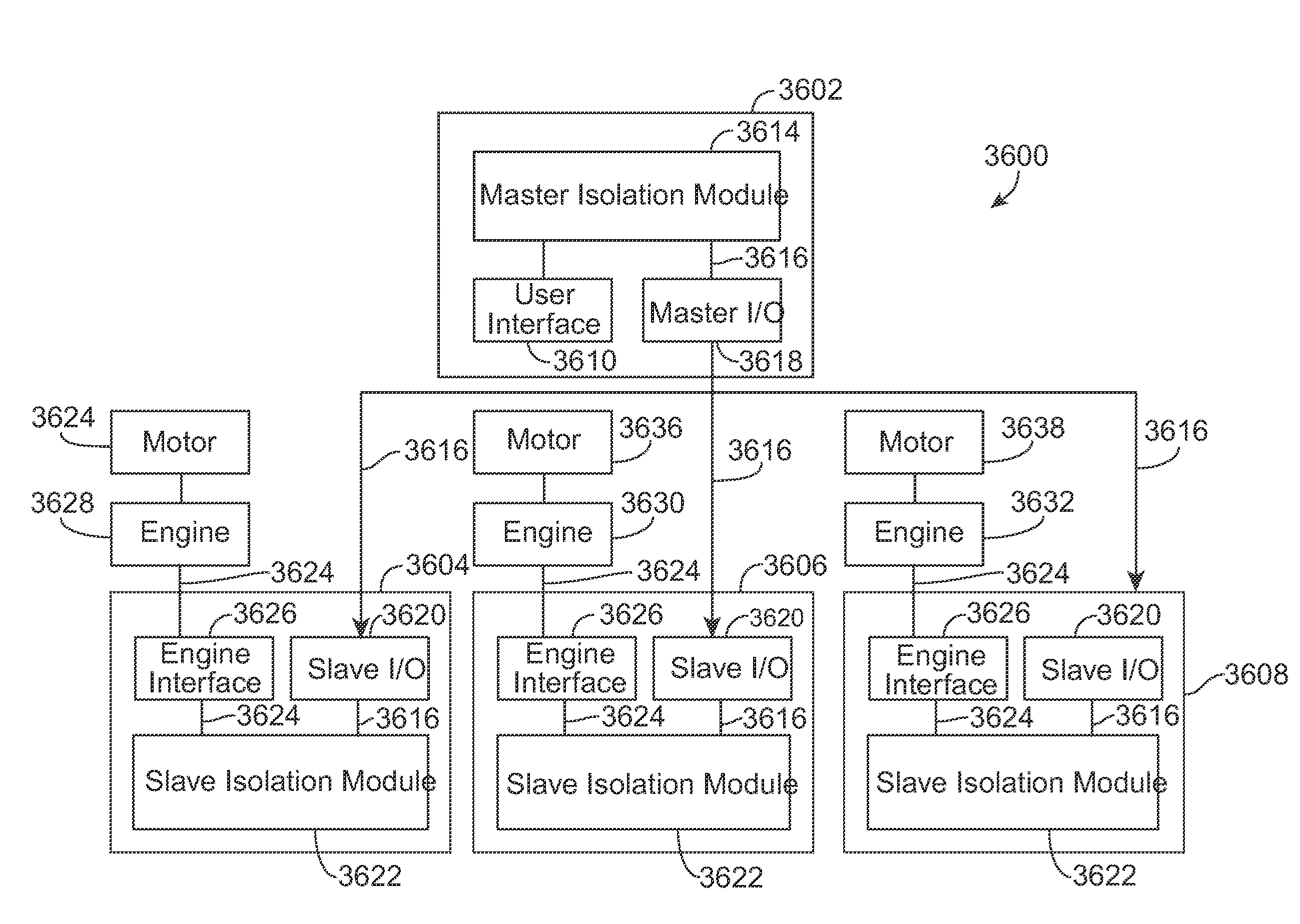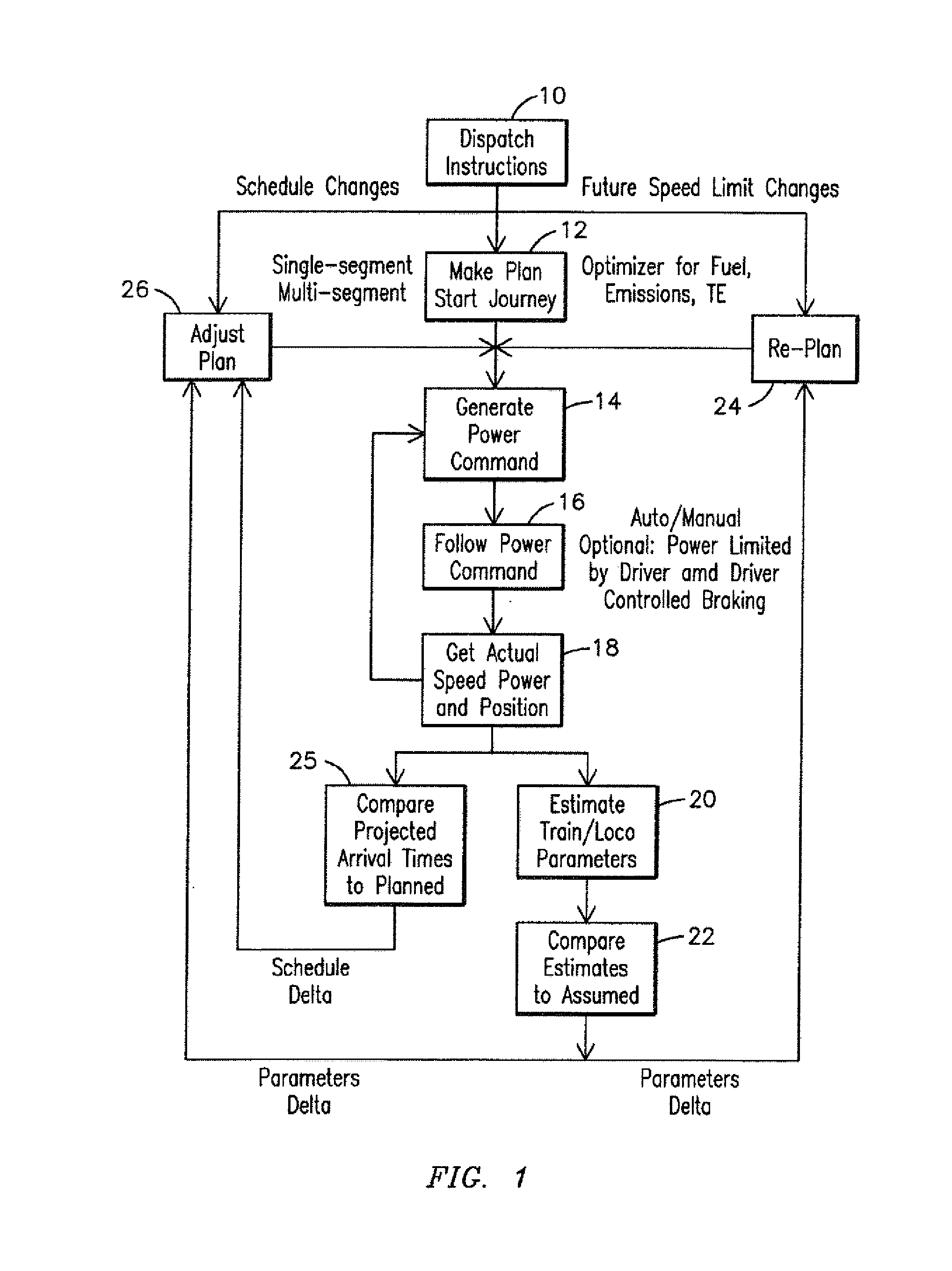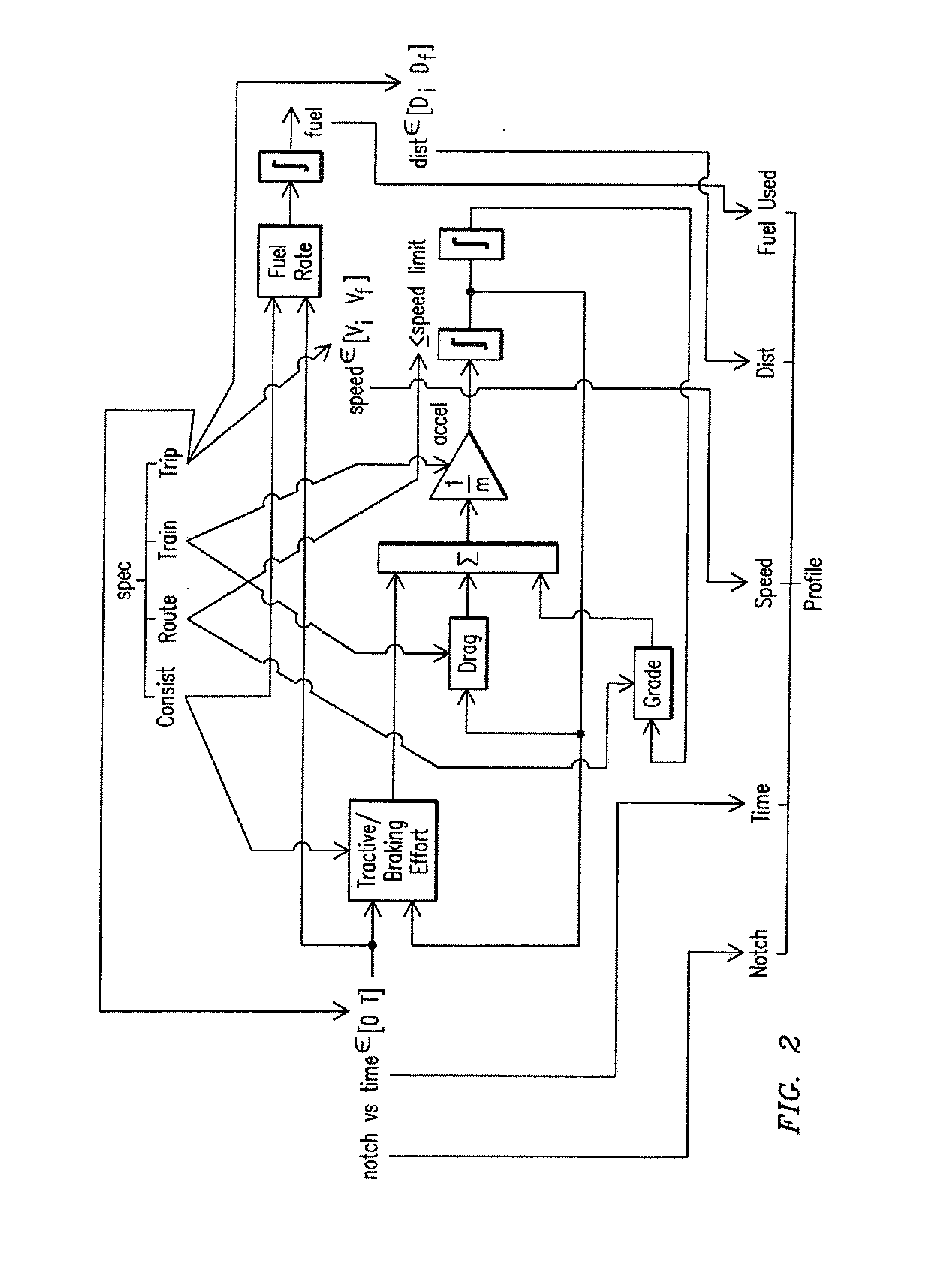Control system and method for remotely isolating powered units in a vehicle system
- Summary
- Abstract
- Description
- Claims
- Application Information
AI Technical Summary
Benefits of technology
Problems solved by technology
Method used
Image
Examples
Embodiment Construction
[0088]Reference will now be made in detail to various embodiments, examples of which are illustrated in the accompanying drawings. Wherever possible, the same reference numerals used throughout the drawings refer to the same or like parts.
[0089]Though some embodiments are described with respect to rail vehicles, or railway transportation systems, specifically trains and locomotives having diesel engines, embodiments may also be applicable for other uses, such as, but not limited to, off-highway vehicles, marine vessels, stationary units, agricultural vehicles, transport buses, each of which may use at least one diesel engine, or diesel internal combustion engine. Additionally the vehicles disclosed herein may also be electric powered vehicles, for example an electric powered locomotive. A mission may include a task or requirement to be performed by the powered system. For example, with respect to railway, marine, transport vehicles, agricultural vehicles, or off-highway vehicle appl...
PUM
 Login to View More
Login to View More Abstract
Description
Claims
Application Information
 Login to View More
Login to View More - R&D
- Intellectual Property
- Life Sciences
- Materials
- Tech Scout
- Unparalleled Data Quality
- Higher Quality Content
- 60% Fewer Hallucinations
Browse by: Latest US Patents, China's latest patents, Technical Efficacy Thesaurus, Application Domain, Technology Topic, Popular Technical Reports.
© 2025 PatSnap. All rights reserved.Legal|Privacy policy|Modern Slavery Act Transparency Statement|Sitemap|About US| Contact US: help@patsnap.com



